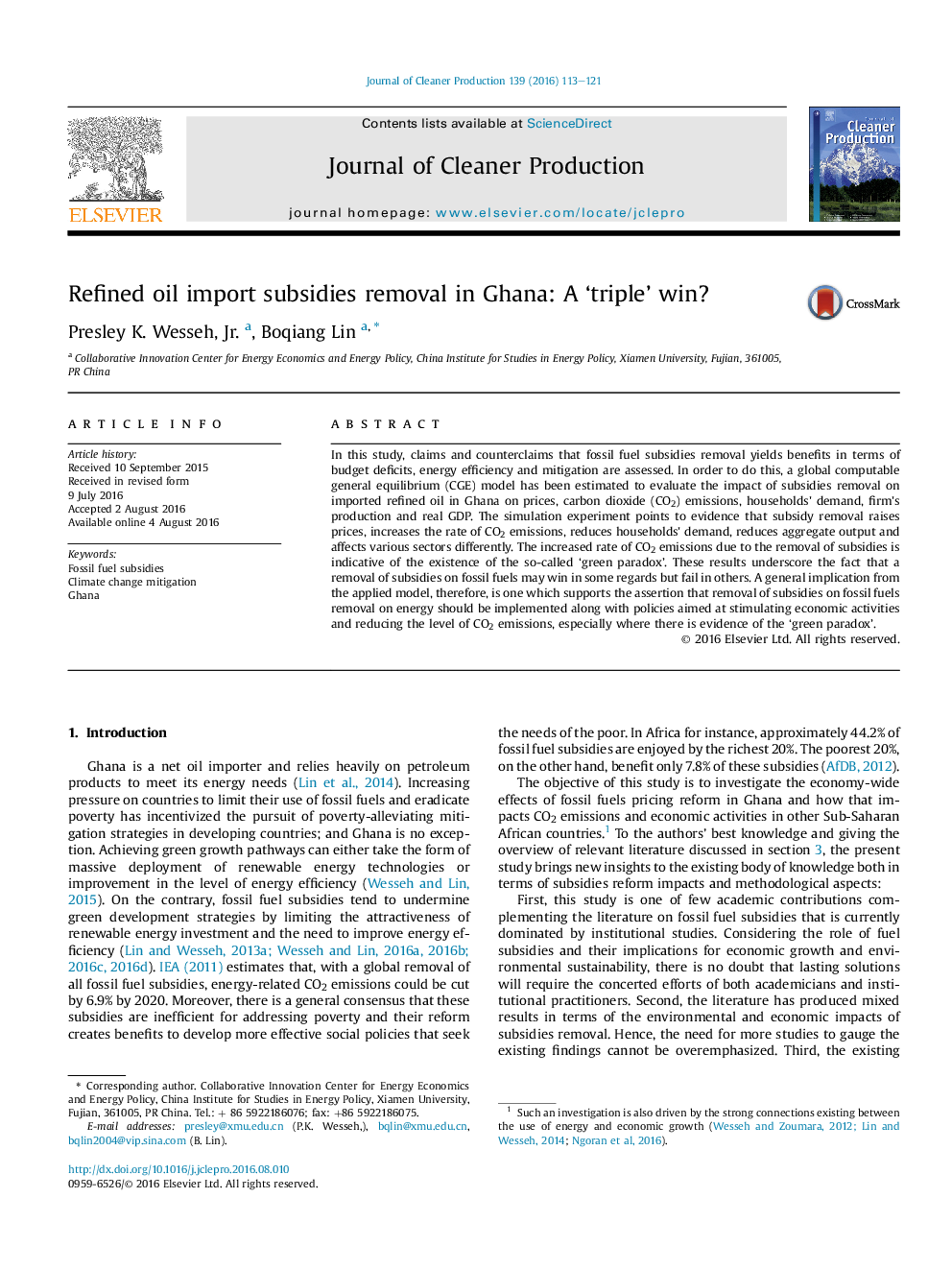| Article ID | Journal | Published Year | Pages | File Type |
|---|---|---|---|---|
| 8100498 | Journal of Cleaner Production | 2016 | 9 Pages |
Abstract
In this study, claims and counterclaims that fossil fuel subsidies removal yields benefits in terms of budget deficits, energy efficiency and mitigation are assessed. In order to do this, a global computable general equilibrium (CGE) model has been estimated to evaluate the impact of subsidies removal on imported refined oil in Ghana on prices, carbon dioxide (CO2) emissions, households' demand, firm's production and real GDP. The simulation experiment points to evidence that subsidy removal raises prices, increases the rate of CO2 emissions, reduces households' demand, reduces aggregate output and affects various sectors differently. The increased rate of CO2 emissions due to the removal of subsidies is indicative of the existence of the so-called 'green paradox'. These results underscore the fact that a removal of subsidies on fossil fuels may win in some regards but fail in others. A general implication from the applied model, therefore, is one which supports the assertion that removal of subsidies on fossil fuels removal on energy should be implemented along with policies aimed at stimulating economic activities and reducing the level of CO2 emissions, especially where there is evidence of the 'green paradox'.
Related Topics
Physical Sciences and Engineering
Energy
Renewable Energy, Sustainability and the Environment
Authors
Presley K. Jr., Boqiang Lin,
